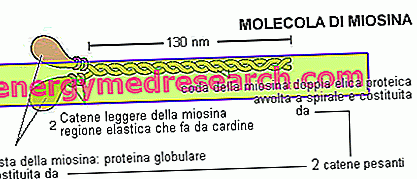Related articles: Encephalitis
Definition
Encephalitis is a widespread or circumscribed inflammatory process that affects several brain structures.
Encephalitis can be primary or manifest as a secondary complication of different infectious diseases (eg brucellosis, syphilis, exanthematous typhus, toxoplasmosis, malaria and trypanosomiasis). The primary forms are determined by neurotropic viruses, which invade the central nervous system directly, damaging neurons and causing symptoms that are generally acute. These infections can be epidemic (eg arbovirus, poliovirus, echovirus or coxsackievirus) or sporadic (eg caused by herpes simplex virus, varicella-zoster, rabies virus or mumps).
Encephalitis can also be caused by autoimmune processes, malignant neoplasms or reactions to toxic substances. Sometimes, encephalitis is associated with inflammatory processes also affecting the spinal cord (encephalomyelitis) or meninges (meningoencephalitis).
Most common symptoms and signs *
- Aphasia
- Agnosia
- Hallucinations
- anisocoria
- Apnea
- Apraxia
- athetosis
- cacosmia
- Catalepsy
- cataplexy
- Catatonia
- Coma
- Conati
- Convulsions
- coprolalia
- Korea
- Dementia
- Learning difficulties
- Neck pain
- Muscle pains
- Brain edema
- Papilla edema
- Temperature
- Hydrocephalus
- Hyperglycemia
- Intracranial hypertension
- hypokinesia
- Lethargy
- logorrhea
- macrocephaly
- Headache
- myoclonus
- Miosi
- Cerebral Death
- Paresthesia
- Memory loss
- Loss of coordination of movements
- Stiffness in the muscles of the back and neck
- Drowsiness
- Confusional state
- Fainting
- Tic
- He retched
Further indications
The symptoms of encephalitis include fever, headache, drowsiness and altered mental status, often accompanied by convulsions and focal neurological deficits. Gastrointestinal or respiratory prodromal symptoms may precede these manifestations. In some cases, signs of impairment occur in specific nerve centers (cranial nerve paralysis, motility disorders or respiratory activity). The involvement of the temporal lobe can occur with cacosmia (perception of unpleasant odors), a symptom that suggests a herpes simplex virus encephalitis. In addition, acute viral encephalitis can lead to cerebral edema; if not properly treated, it can cause haemorrhagic necrosis.
The diagnosis requires the analysis of the cerebrospinal fluid, the electroencephalographic examination and the execution of some neuroimaging tests (computerized tomography and magnetic resonance).
The therapy is supportive and includes the management of fever, dehydration, electrolyte disorders and convulsions. For some pathogens, the treatment involves the use of antiviral drugs.



